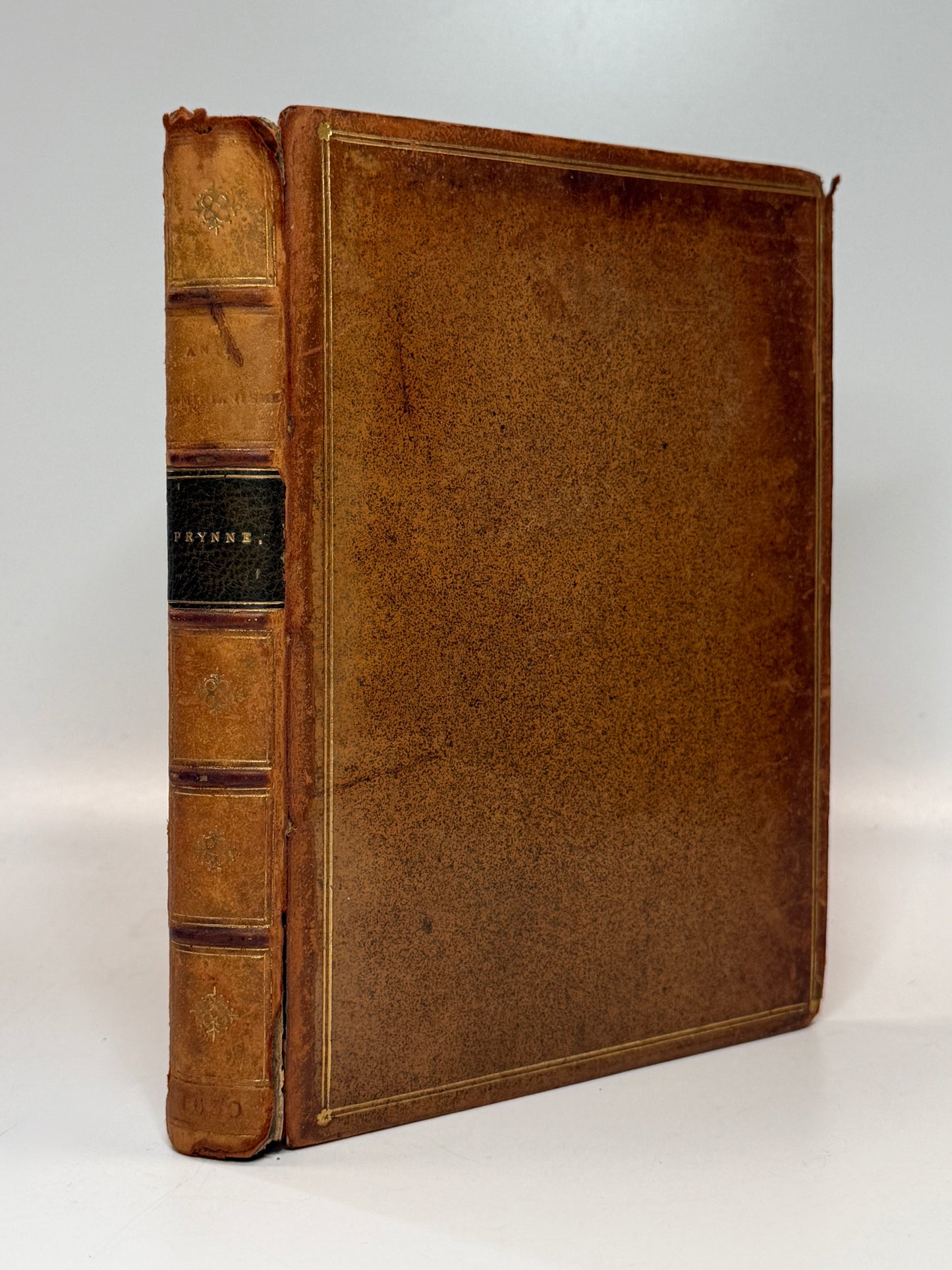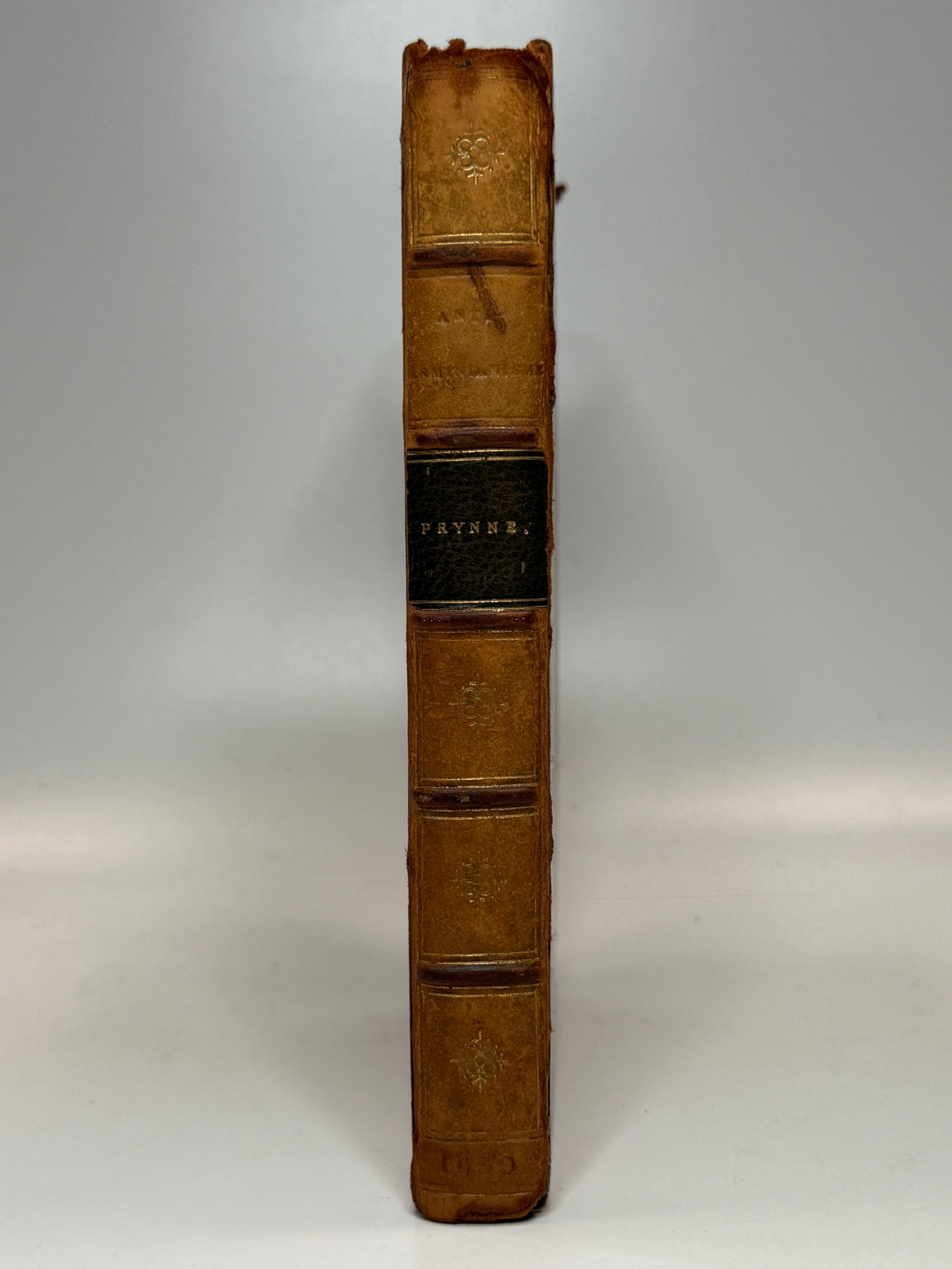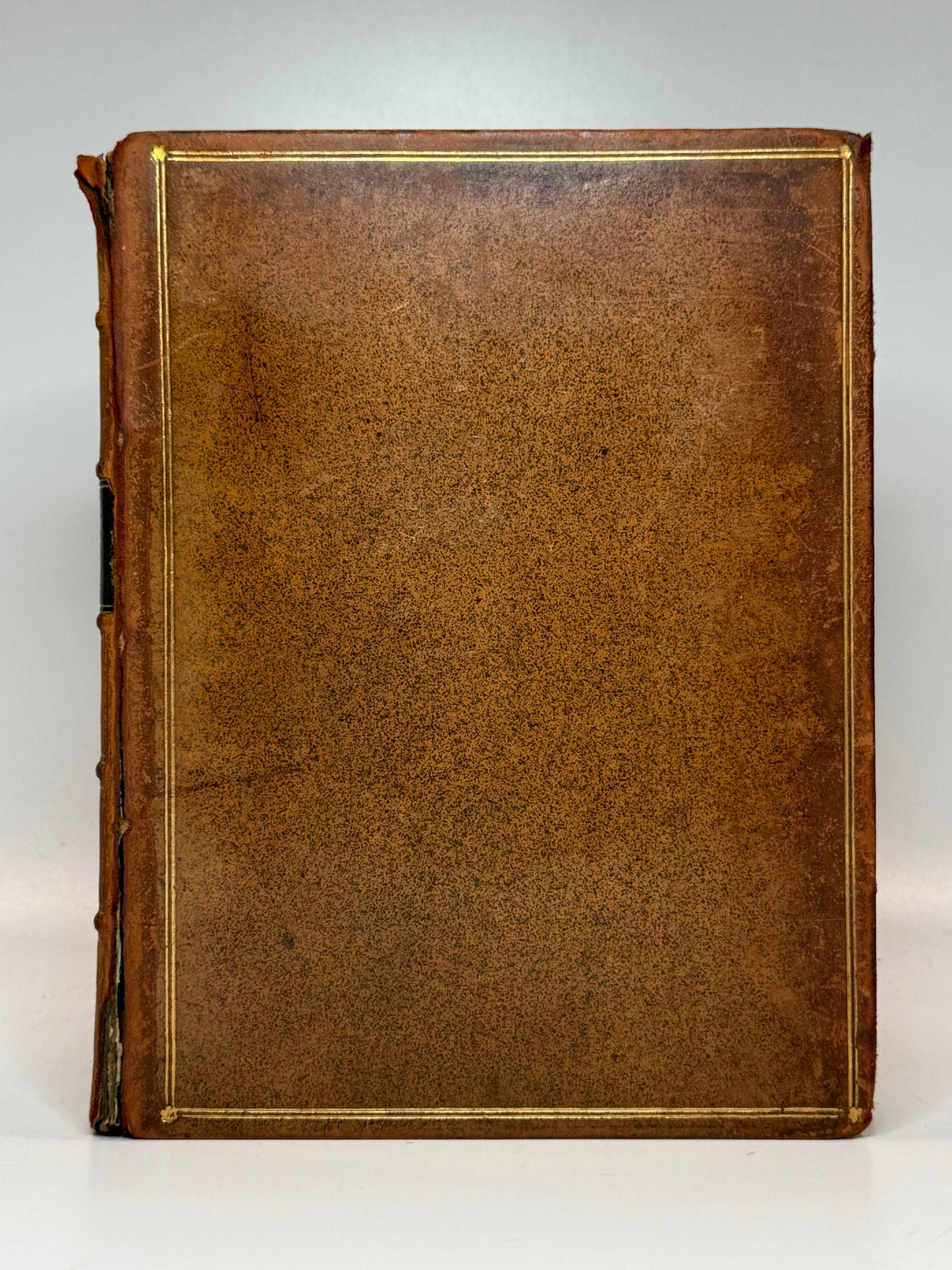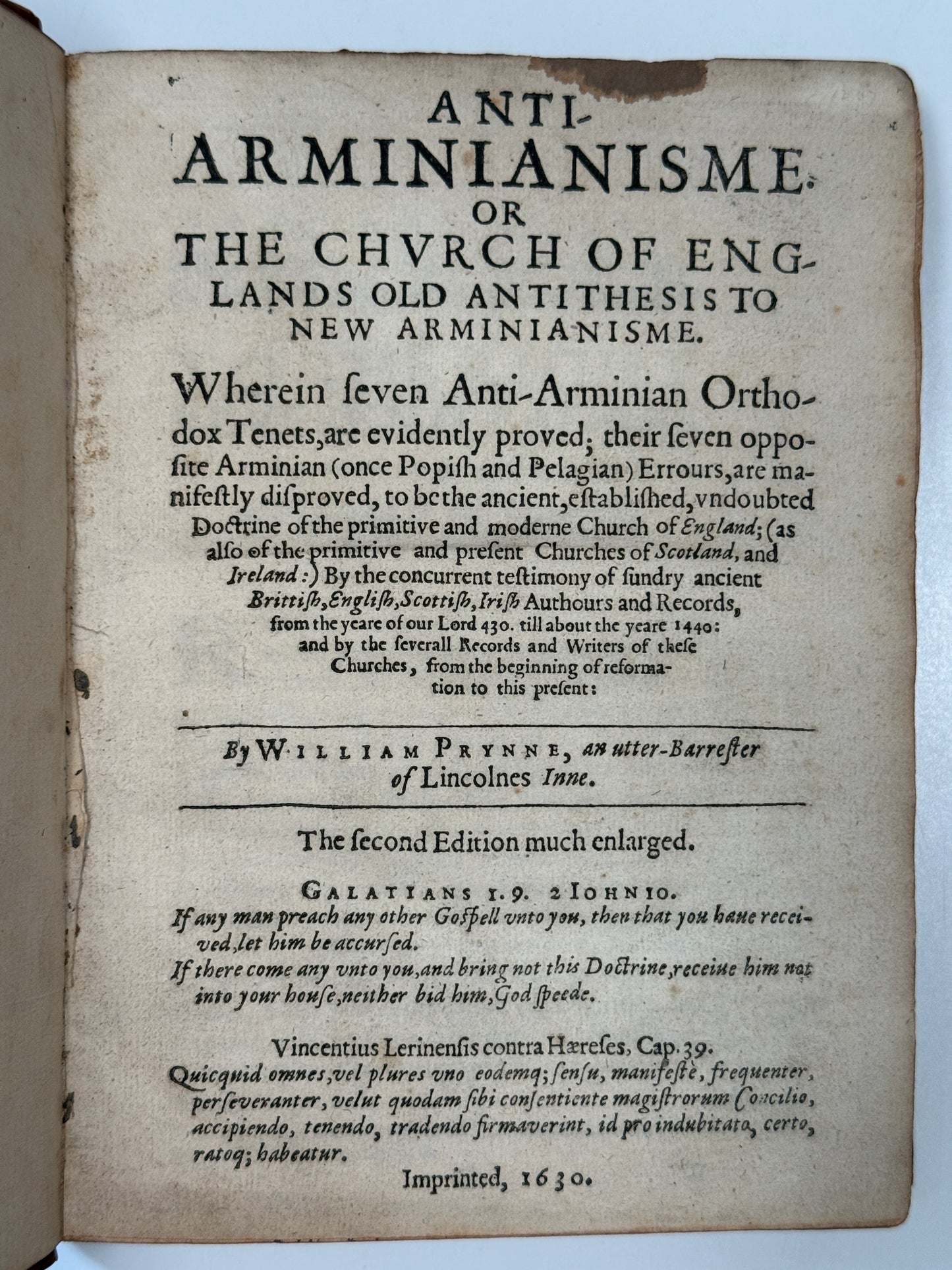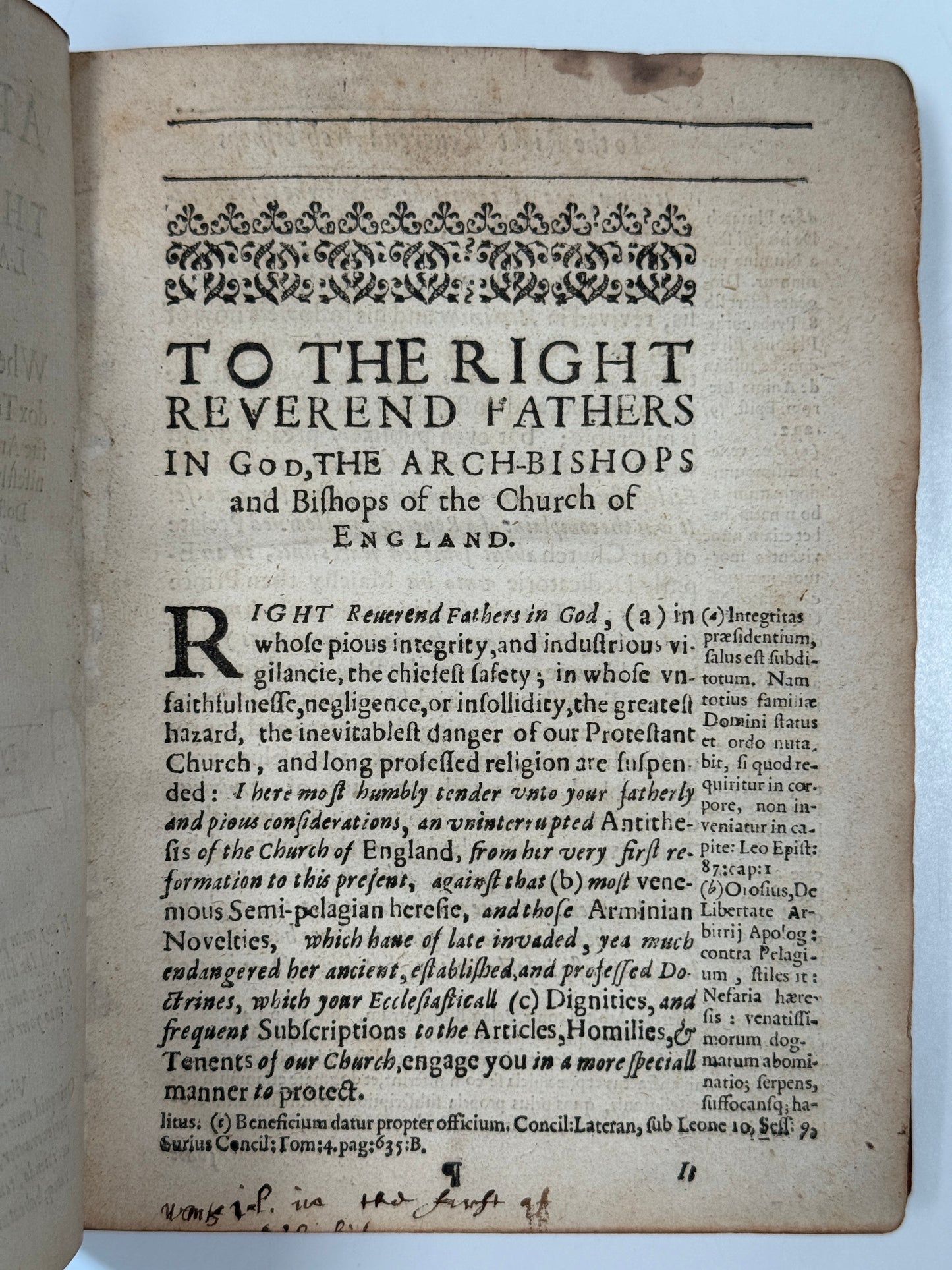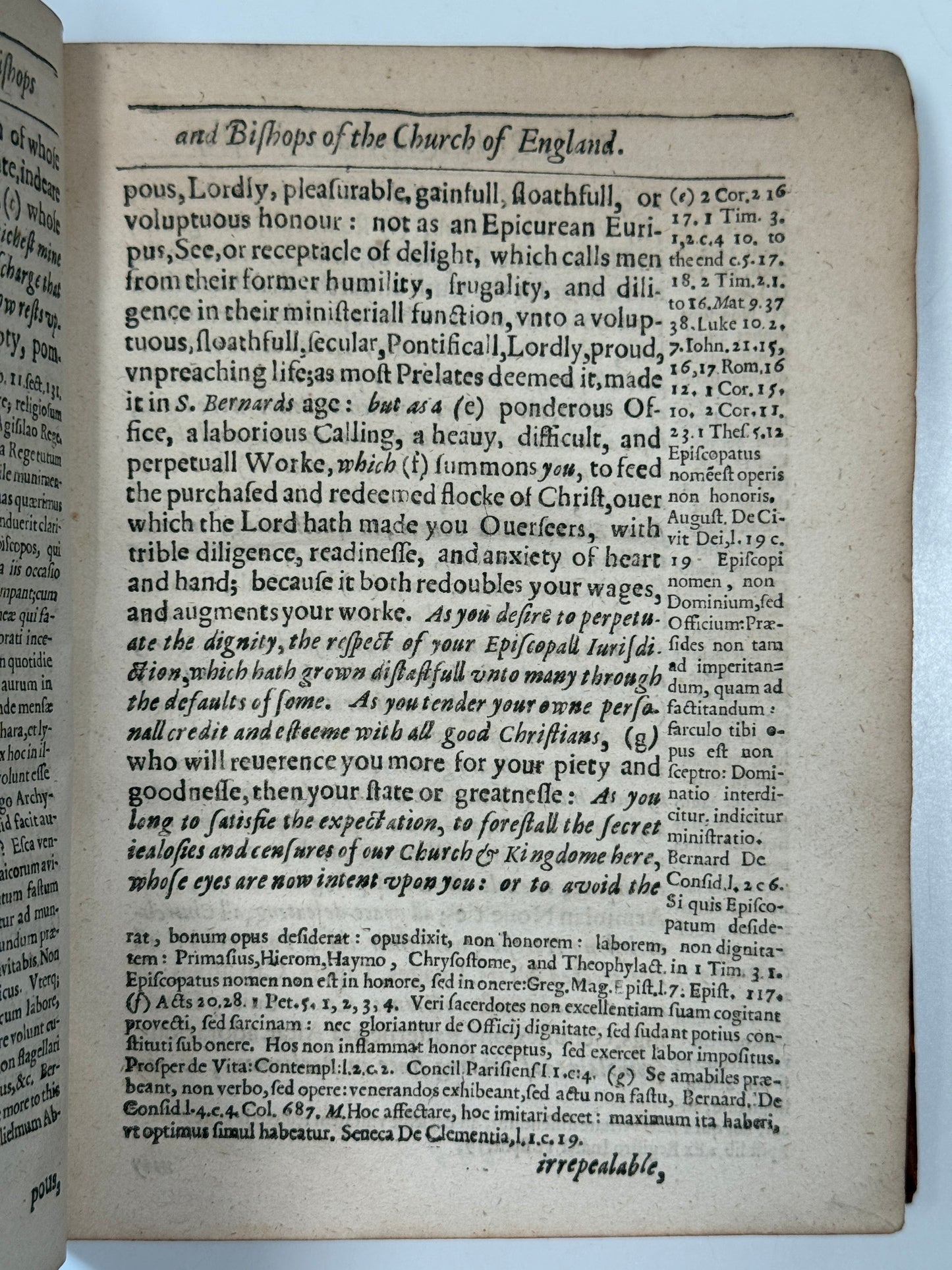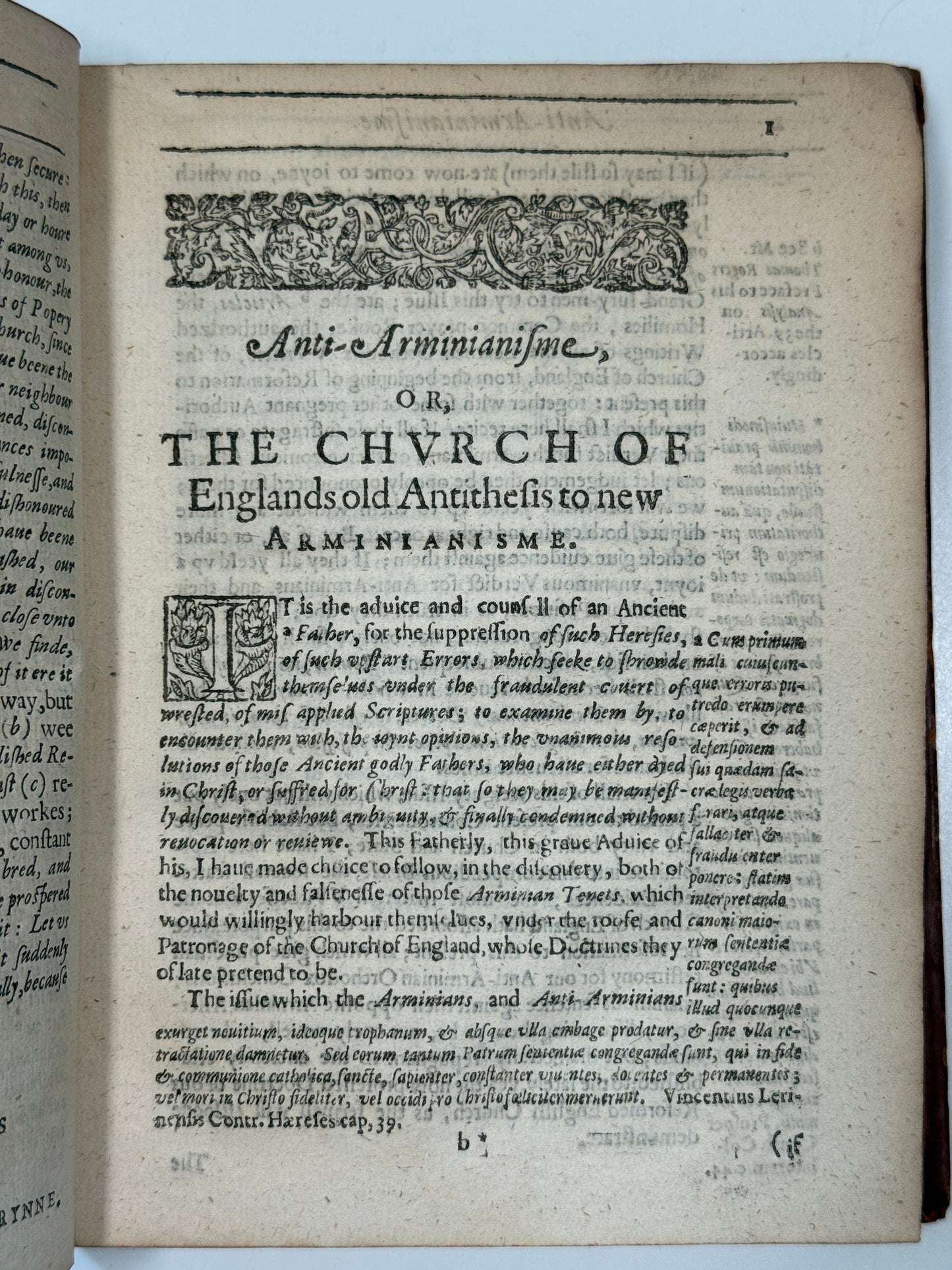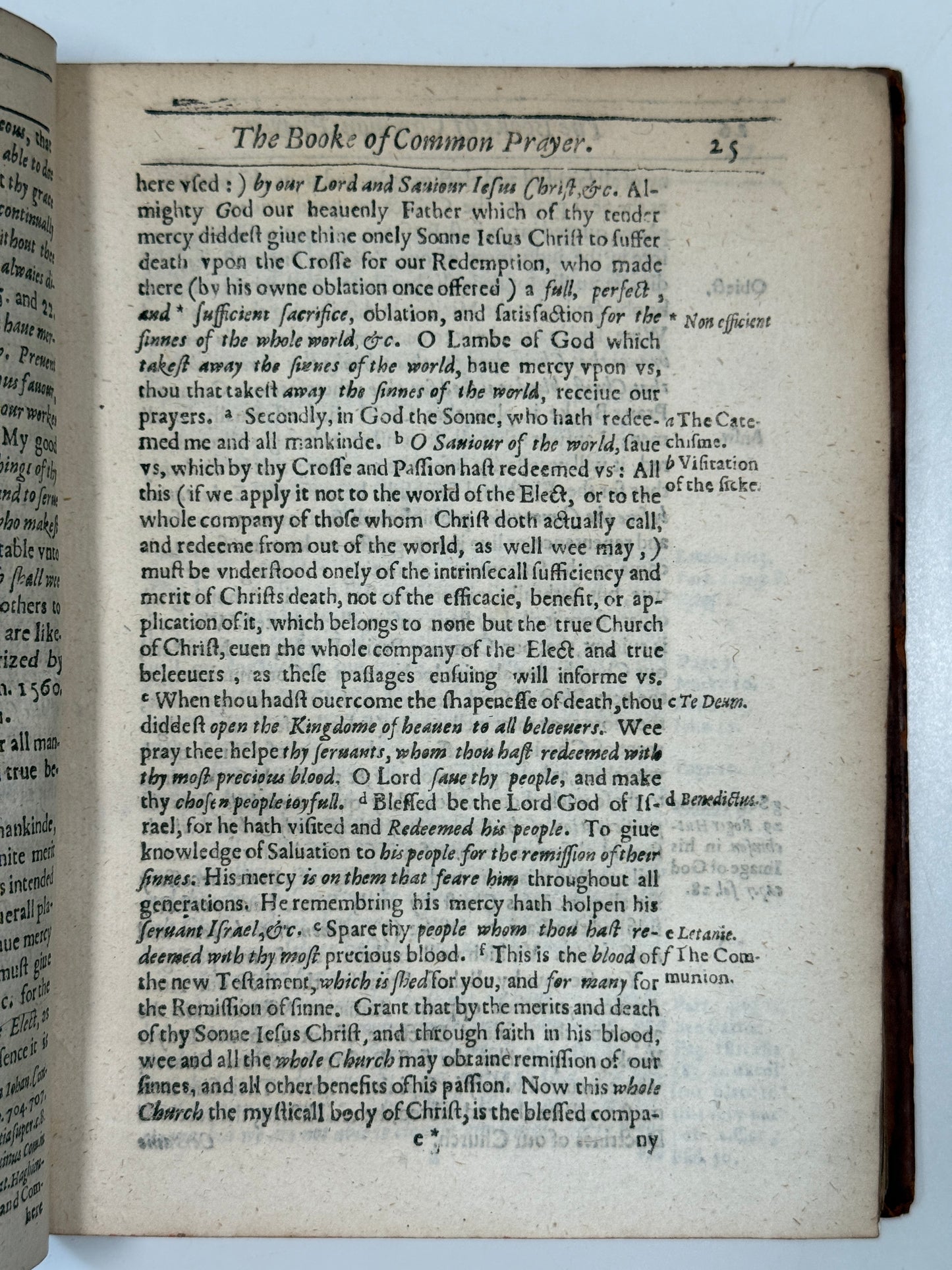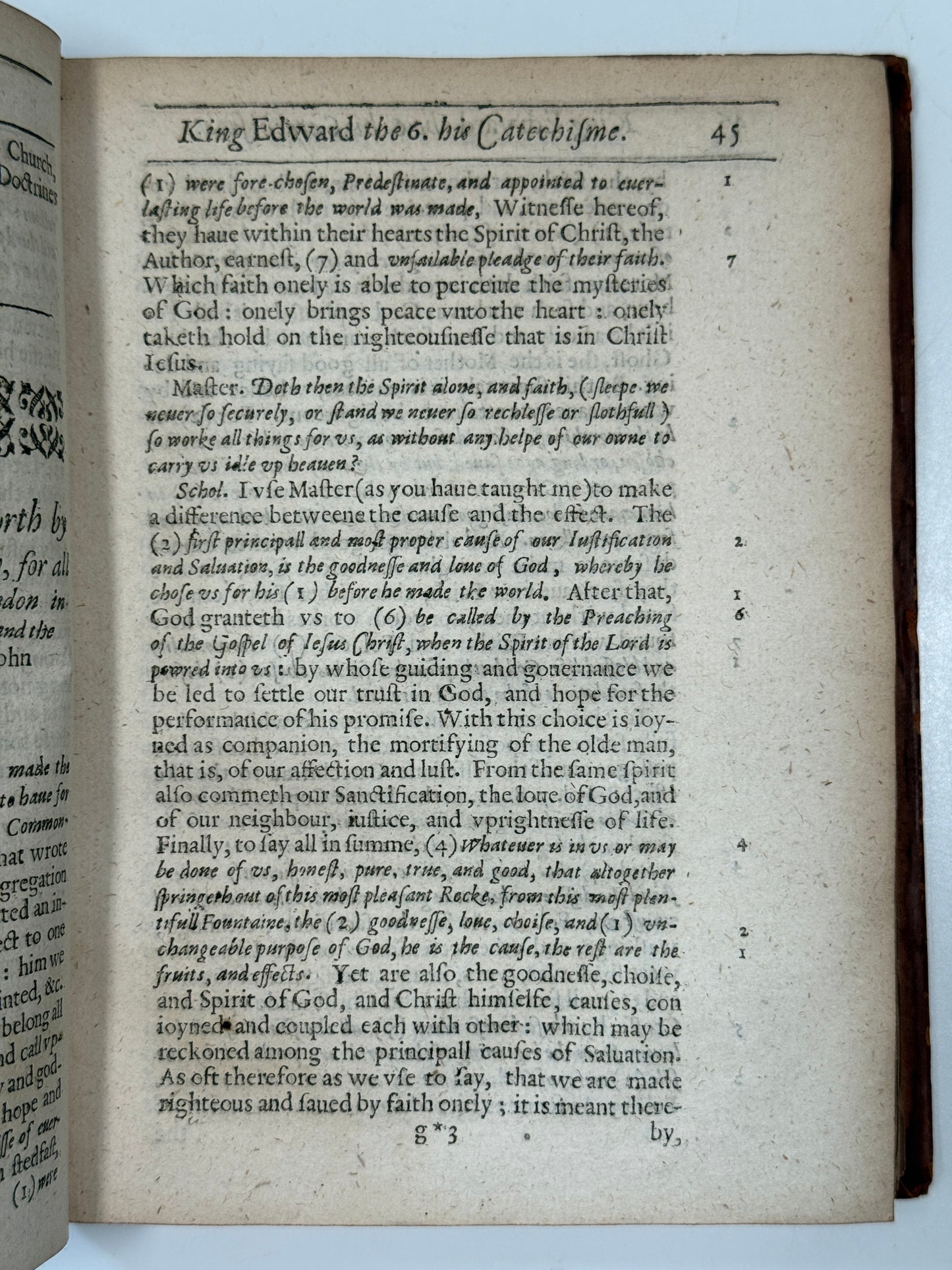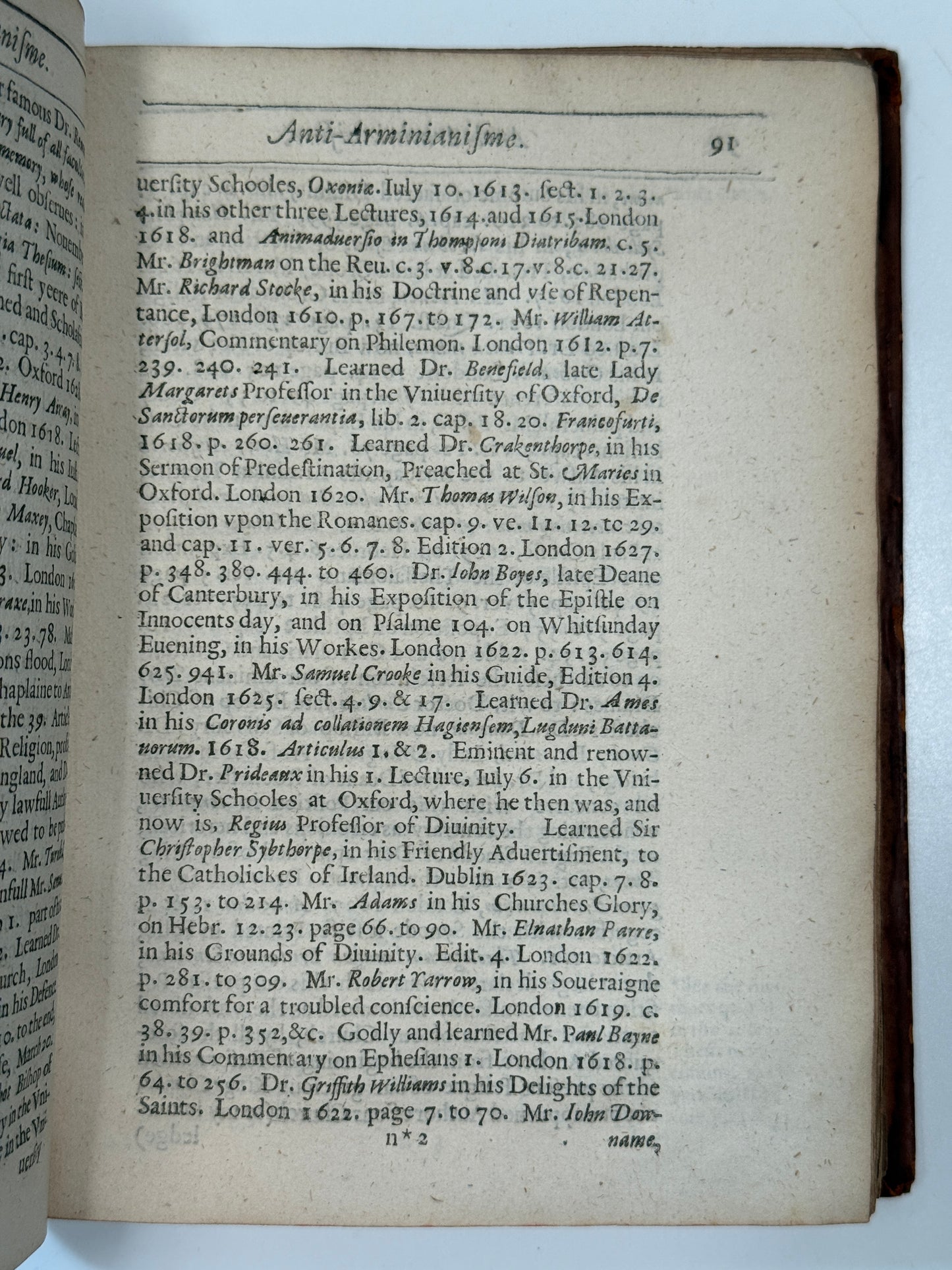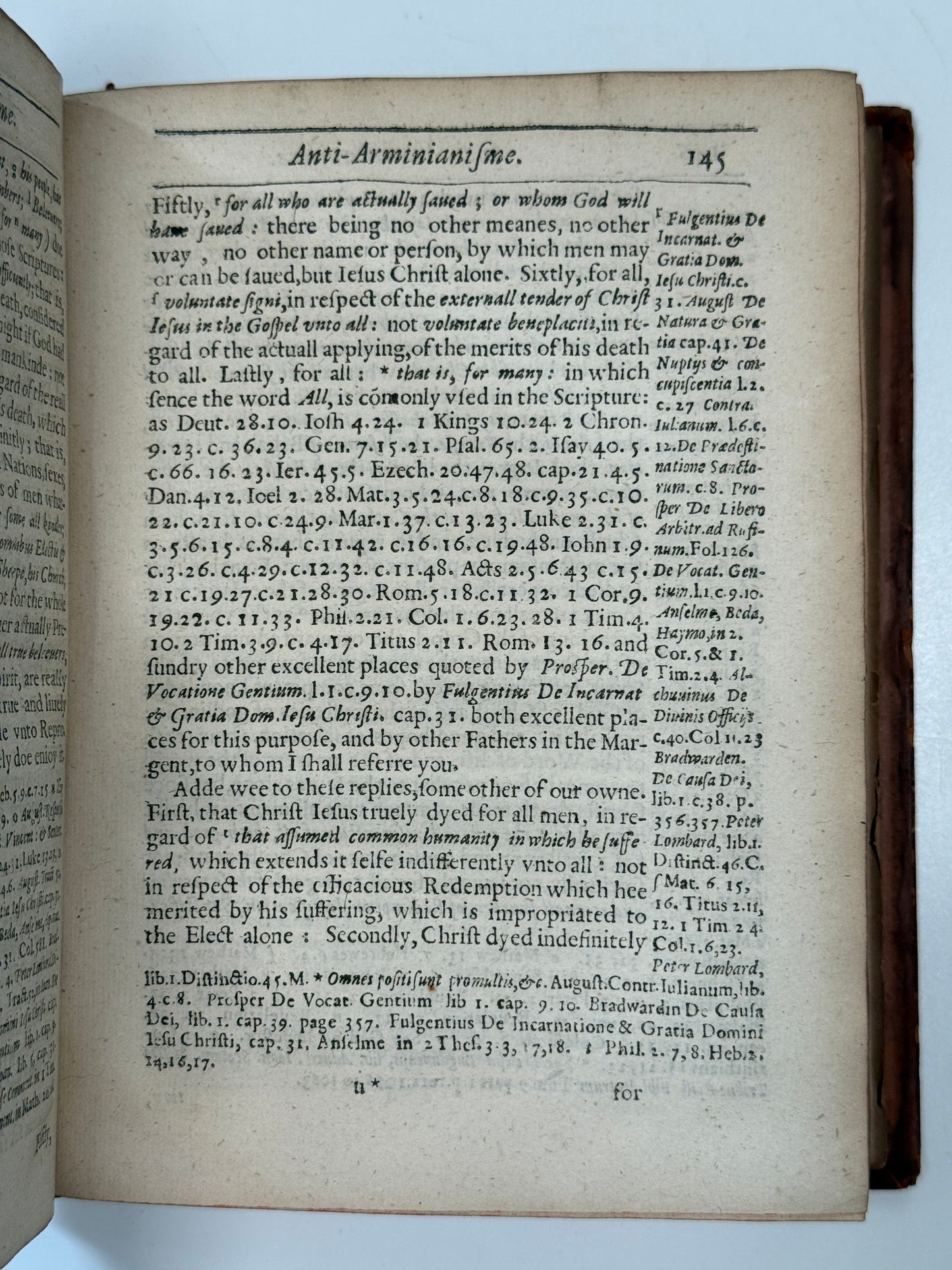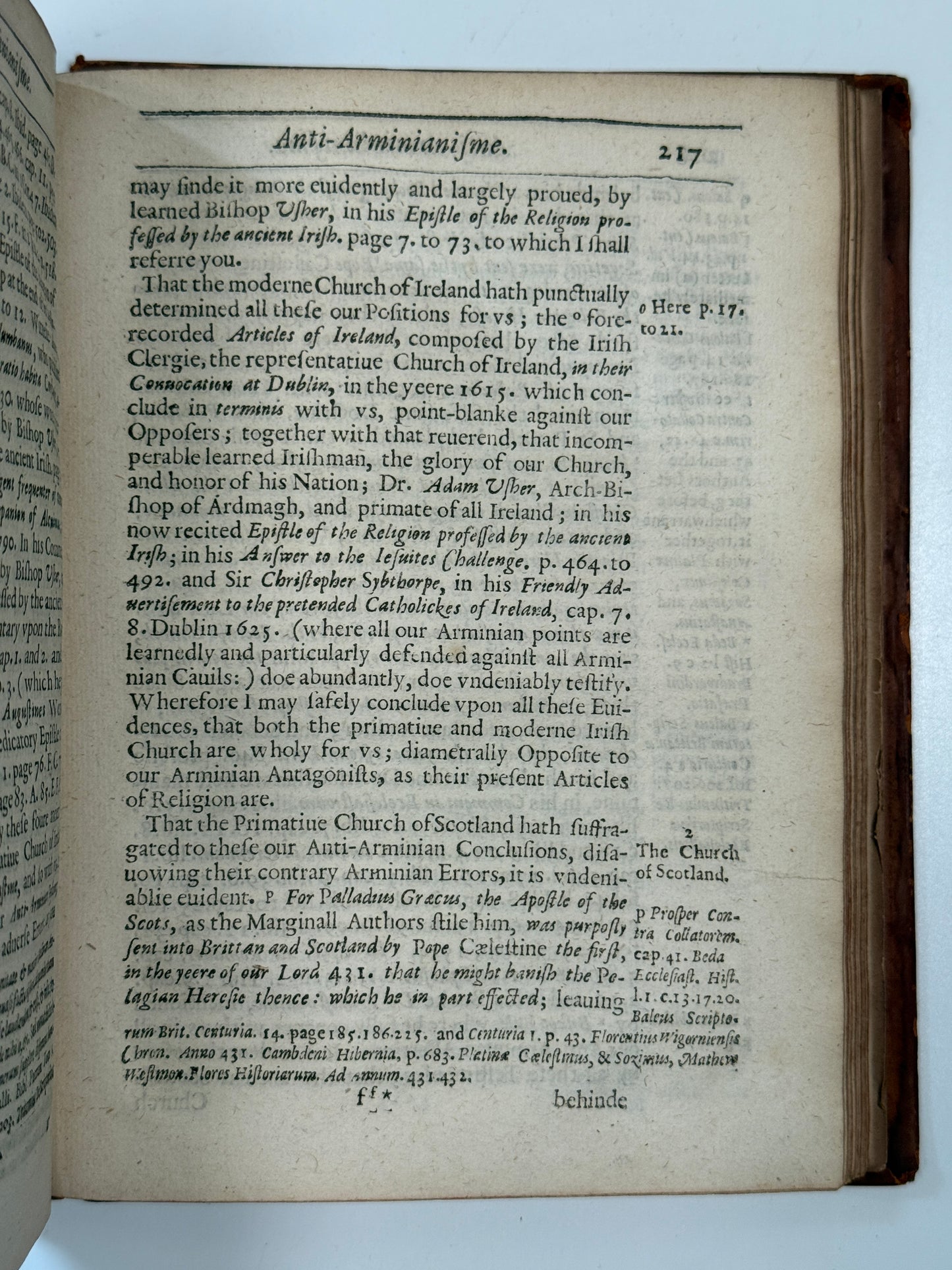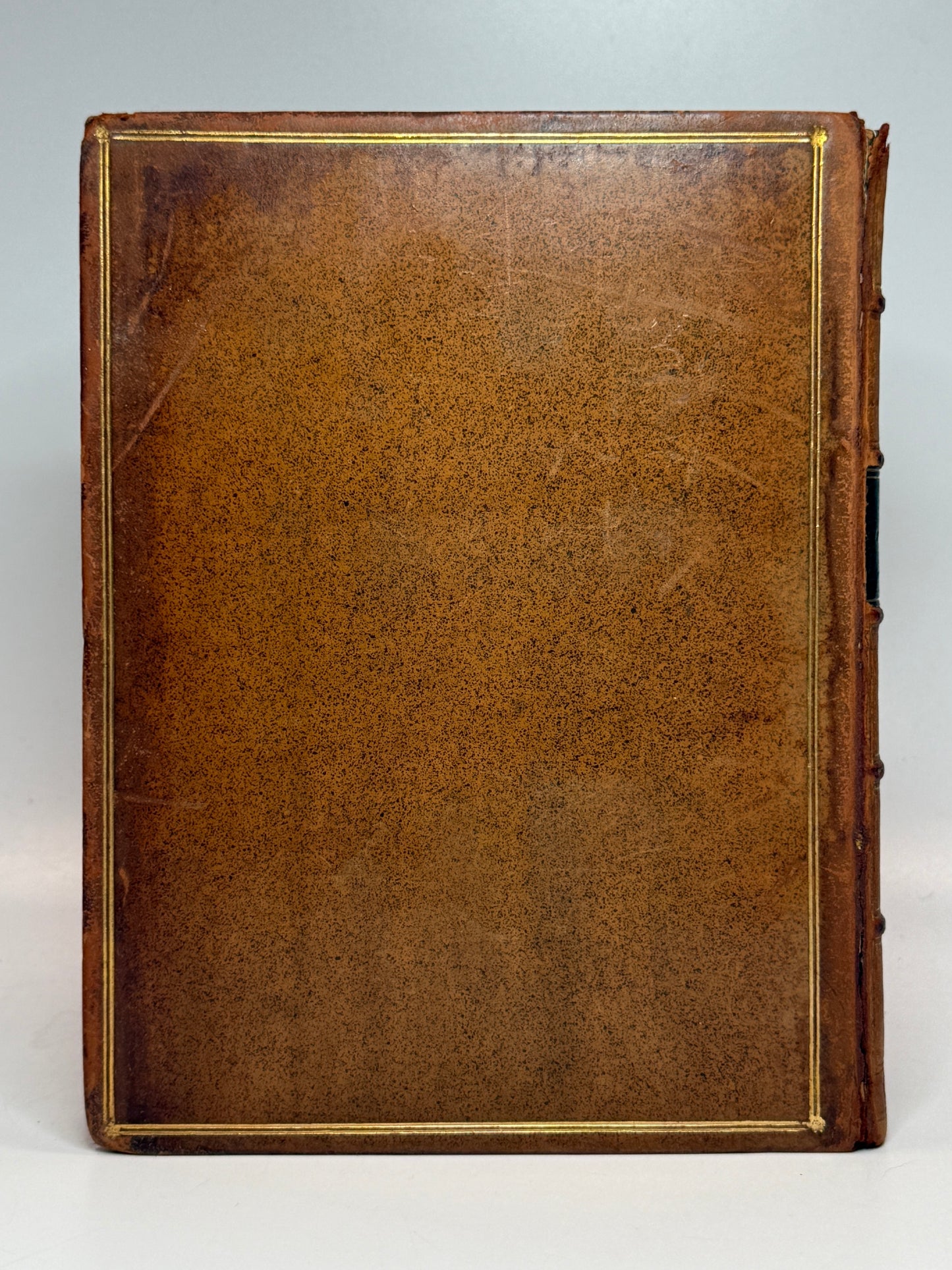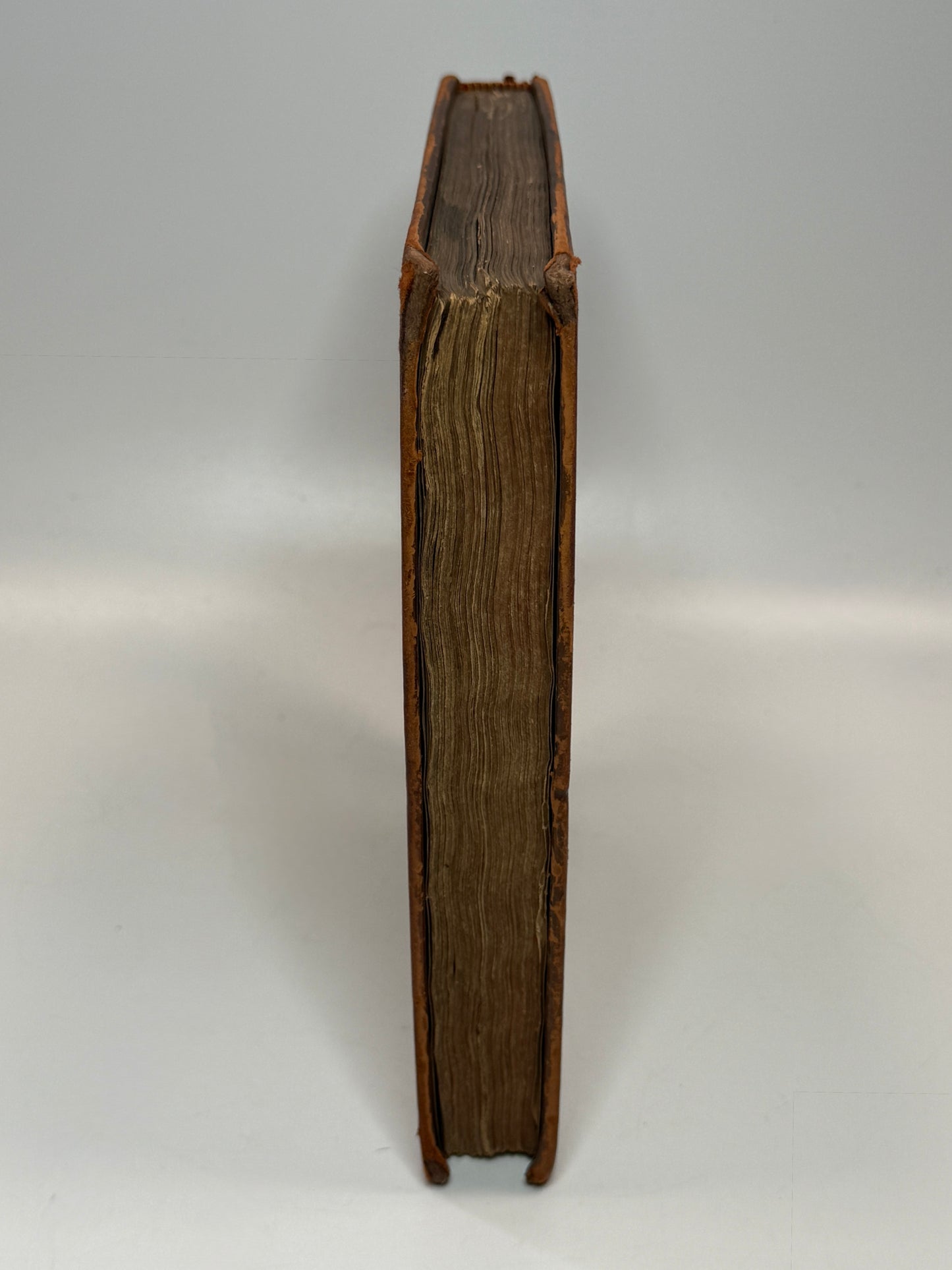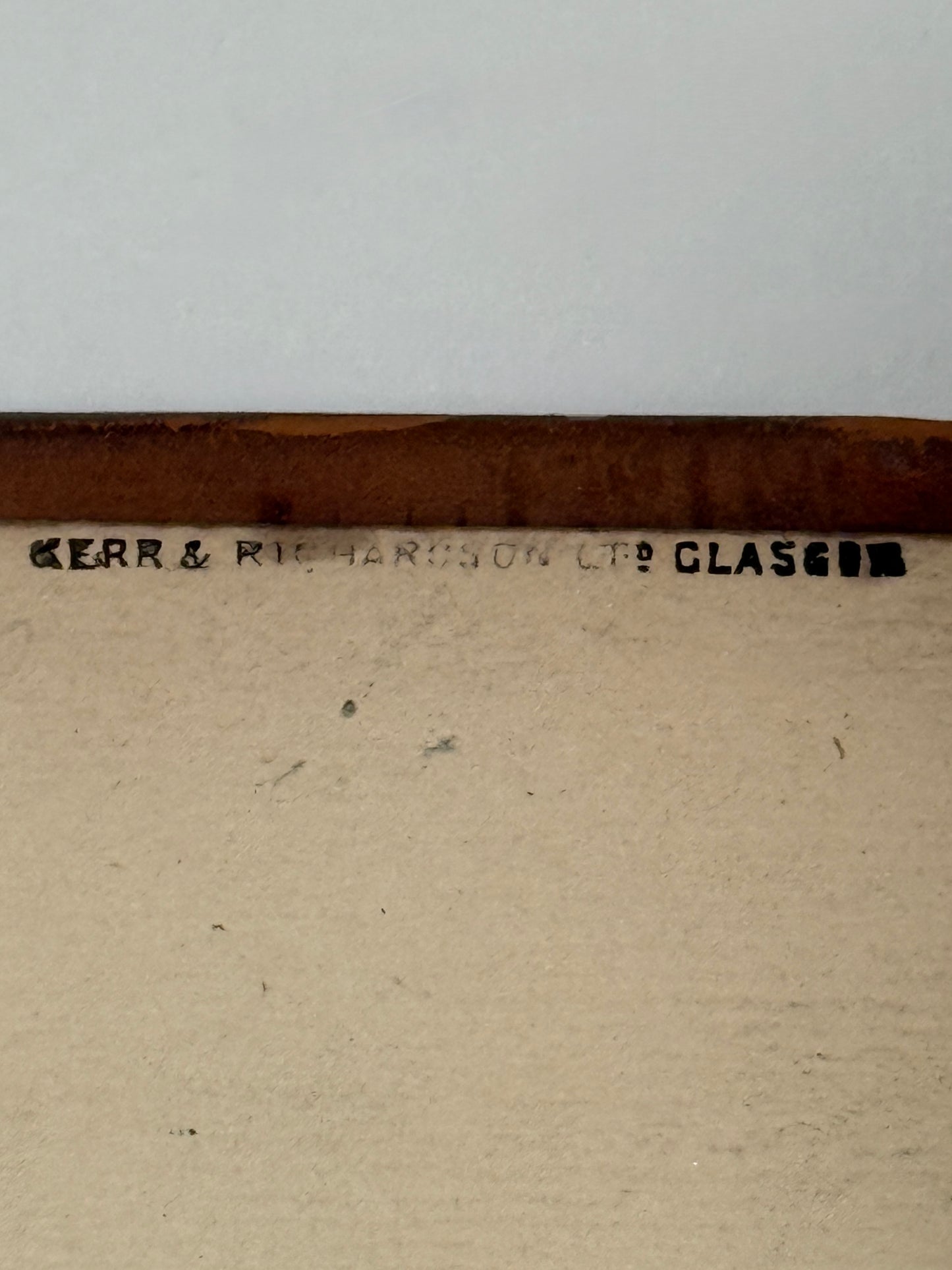Anti-Arminianism by William Prynne 1630
Anti-Arminianism by William Prynne 1630
Couldn't load pickup availability
Anti-Arminianisme. Or the Church of Englands Old Antithesis to New Arminianisme. Wherein Seven Anti-Arminian Orthodox Tenets, are Evidently Proved; Their Seven Opposite Arminian (Once Popish and Pelagian) Errours, are Manifestly Disproved, to be the Ancient, Established, Undoubted Doctrine of the Primitive and Moderne Church of England; (as Also of the Primitive and Present Churches of Scotland, and Ireland:) by the Concurrent Testimony of Sundry Ancient Brittish, English, Scottish, Irish Authors and Records, from the Yeare of Our Lord 430. Till About the Yeare 1440: and by the Severall Records and Writers of These Churches, from the Beginning of Reformation to This Present: By William Prynne, an Utter-Barrester of Lincolnes Inne. The Second Edition Much Enlarged. Imprinted, 1630.
-------------------
William Prynne’s Anti-Arminianisme (1630) is a polemical defence of Calvinist orthodoxy within the Church of England, aimed squarely against the rising influence of Arminian theology in the early Stuart church. The work sets out seven “orthodox tenets” of Reformed doctrine, systematically opposing them to what Prynne labels the “once Popish and Pelagian errors” of Arminianism. Drawing extensively on British, English, Scottish, and Irish ecclesiastical sources from the fifth to the fifteenth century, as well as post-Reformation authorities, Prynne argues that the established teaching of the English Church had always stood firmly against doctrines of free will, conditional election, and resistible grace.
Written while Prynne was still a young barrister of Lincoln’s Inn, the book reflects the deep anxieties of the 1620s over Archbishop Laud and the perceived drift towards Roman Catholic sympathies. Enlarged in this second edition of 1630, it offers both a historical survey and a vigorous contemporary intervention in the most urgent theological controversy of the Charles I period. This work is very rarely encountered in commerce, especially in acceptable condition, and is especially desirable for covering such an ever-pertinent topic which dominates Christian theological discourse to this day.
-------------------
Size: 147 x 190 mm (approx.)
Condition:
[(2), t.p., *4, 3*4, c4, B-H4, K4, M-2S4, (2)]
Full brown calf with a tooled label in a compartment to the spine between raised bands. One tooled label lacking. Binding rubbed and scuffed. Decorative gilt to spine dulled with some loss. Both boards attached with cracked joints and hinges, front board partially detached, thus the boards are fragile. Shelf and edge wear. Page edges dulled. Small ink stains to the upper corner of the page block. Binder's stamp to front blank. Text block lightly toned with sporadic foxing, generally well preserved throughout the text. Small amount of ink marginalia.
